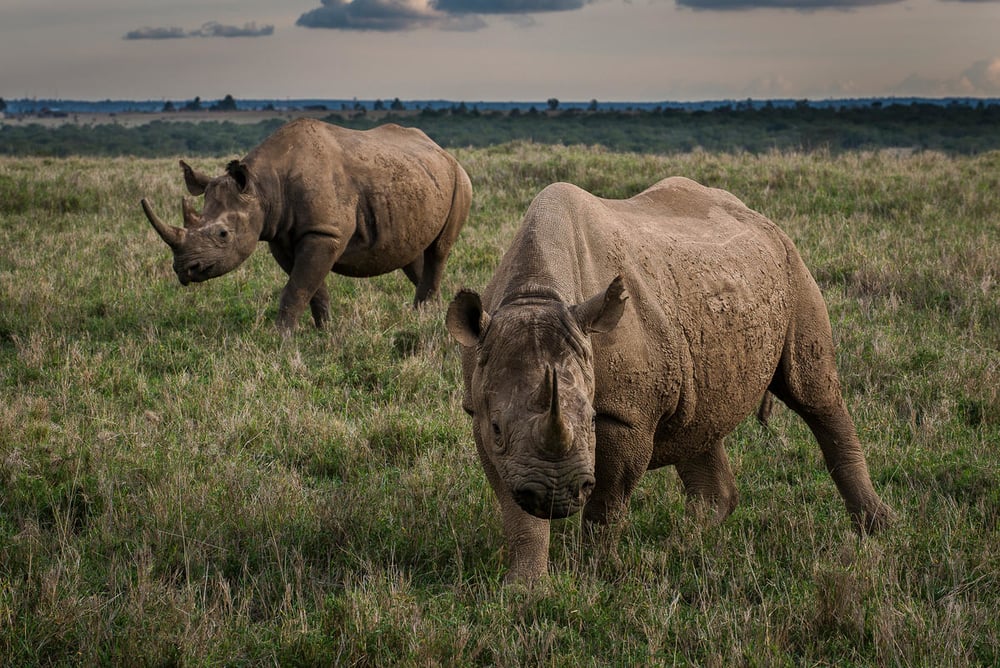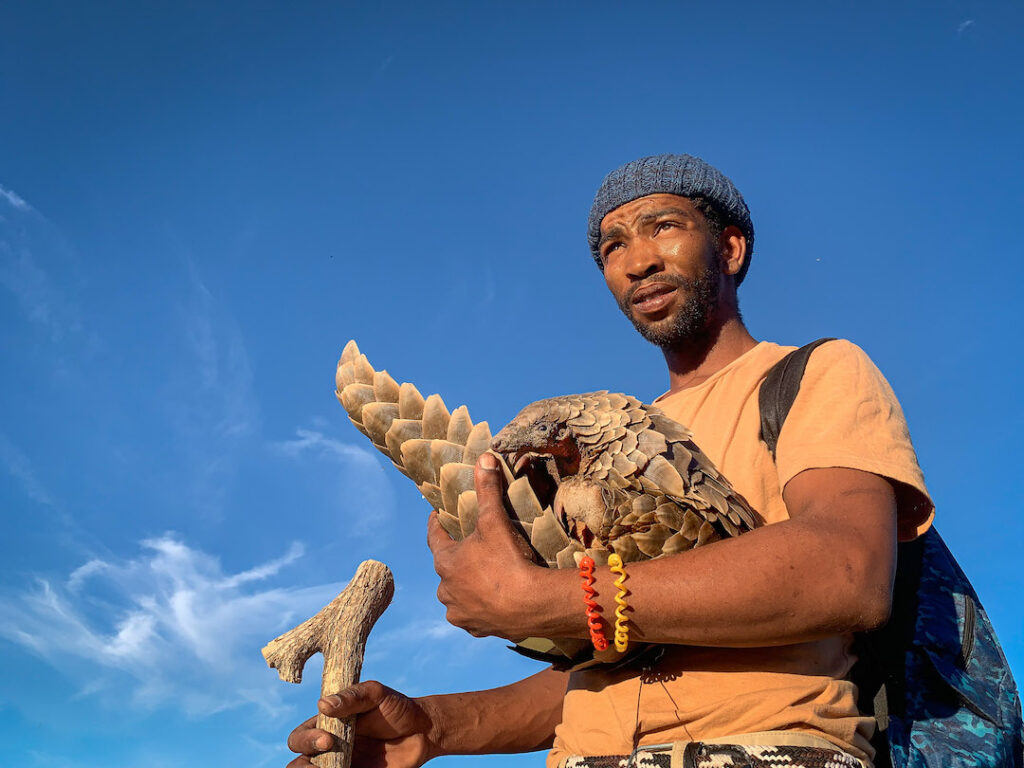The image of elephants playfully frolicking in the forest or spraying unsuspecting passersby with water is how we’ve come to picture Thailand and its national symbol.
Sadly, this romanticised image tells only half the story. Chained, malnourished, distressed and, in some cases, drugged, street begging elephants are forced to perform tricks and pose for photo ops with tourists in exchange for tips.
Despite these gentle giants’ strong cultural reverence in Thailand, the mistreatment of elephants (chang in Thai) is nothing new in Southeast Asia. Nor is their domestication. Used as work animals as far back as 2000 BC, the Asian Elephant Specialist Group estimates that roughly half of Thailand’s 7,500 elephants live in captivity.
Covid Refugees

It was the country’s blanket ban on logging elephants – controversially used to clear their own habitat – that precipitated the first wave of illegal street begging (or panhandling) elephants in the late 1980s. Then came along the pandemic, which pummelled Thai tourism and shut down scores of the country’s elephant camps and sanctuaries overnight, leaving more than 1,000 elephants and their mahouts (handlers who look after them 24/7) jobless and hungry.
Hot pavements burn the soles of their feet, traffic-choked air can lead to tuberculosis while open storm drains and sewers can be literal death traps. Traffic collisions are also common, along with electrocution. A city-living elephant’s life span can be half that of its countryside cousins
According to World Wildlife Fund UK, an average adult elephant consumes a minimum 150kg of food a day, which is equivalent to between 4-7 per cent of their body weight. Costing $US40 per elephant, that’s four times Thailand’s minimum daily wage. With expensive trunks to feed, some mahouts returned to their hometowns in 2020, while others fled to major cities like Pattaya, Phuket, Chiang Mai and Bangkok to scratch a living from the streets.
Concrete Jungle
The unsafe and unsanitary urban jungle is no place for these enormous forest dwellers, who are blighted by health problems in the city. Hot pavements burn the soles of their feet, traffic-choked air can lead totuberculosis and eye calluses, while open storm drains and sewers can be literal death traps. Traffic collisions are also common, along with injury by electrocution. Thailand-based not-for-profit The Care Project Foundation revealed that a city-living street begging elephant’s life span can be half that of its countryside cousins.

Unlike their naturally shaded habitat, there’s nowhere to hide from the sun in the concrete jungle. Street begging elephants are subjected to a potentially fatal combination of dehydration, heatstroke and sunburn, which can cause the skin to literally peel from their backs according to Asian Elephant conservation organisation: Ele Aid.
Their dignity and basic needs are all but stripped from them. With no regular bathing, skin diseases and infections are rife. And in some cases, these gentle giants are forced to sleep in ditches or disease-ridden garbage dumps by their handlers to avoid attracting the attention of authorities. Most shocking is their deliberate starvation to limit excretion, which can impact these sensitive creatures’ mental health too. It’s a well-known fact that elephants are prone to depression when hungry.
Disturbingly, some owners will stunt the growth of infant and juvenile elephants by underfeeding them. ‘[Handlers] typically use smaller elephants that are ‘show-pet age’ which can easily fit in the back of a pickup truck,’ Head Elephant Veterinarian at the Golden Triangle Asian Elephant Foundation (GTAEF) Dr. Nissa Mututanont tells The Ethicalist.
Street begging elephants are subjected to a potentially fatal combination of dehydration, heatstroke and sunburn which can cause the skin to literally peel from their backs
Crowded temples, noisy markets and busy tourist thoroughfares are popular places for mahouts to take their elephants, who are subjected to even more sensory overload in bar-filled streets. By day, many live on abandoned plots of shadeless land and are dragged to gas stations by their handlers for water, reveals Dr Mututanont. To keep them working longer hours, these peaceful pachyderms are sometimes drugged with a cocktail of alcohol and amphetamines to fight fatigue. Shaking heads and aggressive behaviour are telltale signs of forced drug abuse in street begging elephants.
Saving Street Begging Elephants

Tragically, the trauma stays with some of these magnificent beasts for the rest of their long lives. ‘Pumpui kept her fear of vehicles,’ Dr Mututanont explains of a 46-year-old street begging elephant who was rescued from Thailand’s streets in 2009 after a car accident left her with a lame right hind leg.
Pumpui, who, sadly, recently passed away, was rehomed in Anantara Golden Triangle Elephant Camp & Resort, located in Thailand’s northernmost province of Chiang Rai. Operated in conjunction with GTAEF, the camp is a second chance at life for 20 mahouts and their loyal elephants, which include covid camp refugees, ex-circus entertainers and retired logging elephants.
‘Pumpui found a friend called Dah while living with us,’ Dr Mututanont says, adding ‘they kept each other company and Dah would often console her when a car came too close.’ For other campmates, like 63-year-old Boonma, they wear the physical scars of their past too. Forced to haul heavy loads of timber for decades in the country’s (disappearing) forests, her deformed spine is a lasting reminder of the abuse these gentle giants have endured for man’s pursuit of profit.
Care & Conservation

Determined to remedy the problems faced by Thailand’s captive elephants at a deeper level, GTAEF has adopted a multi-pronged approach to Asian elephant conservation. Rather than buying elephants, GTAEF pays its mahouts fair wages and provides them and their family with health insurance and accommodation, Dr Mututanont explains. By investing in the welfare of mahouts – a profession still deemed illegitimate by the Thai Government – the non-profit is also investing in the future of the country’s captive elephants.
GTAEF also runs the world’s first programme teaching scientific Positive Reinforcement to mahouts in place of phajaan: a traditional Asian practice that disciplines elephants with punishment. Literally translated as ‘crushing the spirit’ in Thai, many baby Asian elephants continue to be tamed for domestication with this cruel, centuries-old practice that involves elephants being beaten with spike hammers, confined to cages and shackled in leg cuffs.
Knowing that a happy and financially secure mahout equals a happy elephant, Anantara Golden Triangle Elephant Camp & Resort puts this unique human-pachyderm relationship at the heart of its conservation efforts. A mahout will sometimes spend more time with their elephant than their own families, reveals Dr Mututanont.

‘Beau was like a big sister to me when I was younger,’ 38-year-old Khun Berm says of his 44-year-old elephant. Hailing from Surin – a rural province in eastern Thailand known as the “Hometown of Elephants” – Berm is the camp’s master mahout, who admits that feeding, walking, bathing and training is a round-the-clock job.
It’s a daily routine that guests staying at the resort can observe and enjoy at a respectful distance as part of award-winning Anantara’s ethically-driven, responsible excursions like ‘Walking with Giants.’ As I followed in the mud-caked footsteps of four-year-old Chok Petch and her adopted grandma, Boonma, it confirms what I’d thought all along: that the satisfaction of being in these gentle giants’ company comes not from feeding them piles of sugarcane or riding them. Rather it comes from watching them interact with one another and their forest home, as nature intended.









